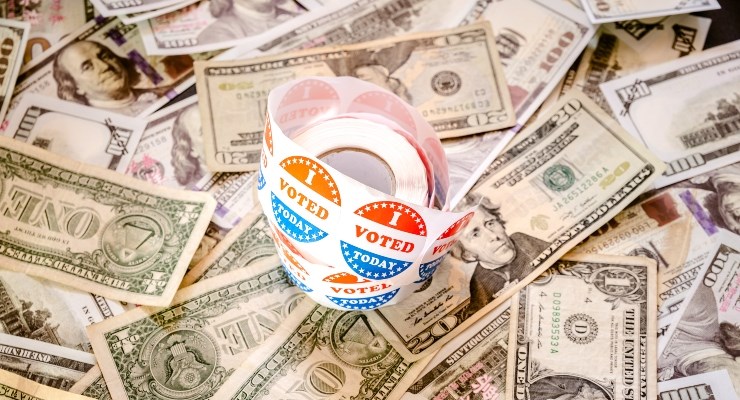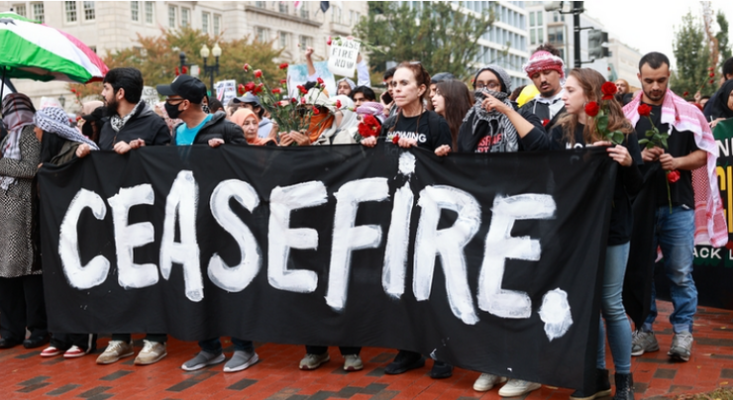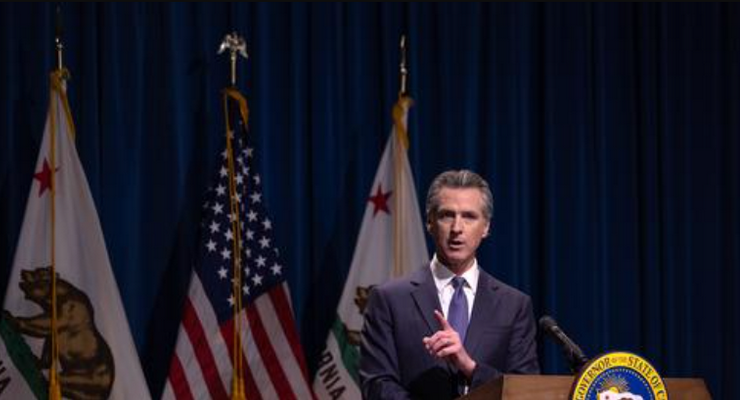
A couple of years ago, I was sitting in a packed auditorium on Easter Sunday listening to my pastor talk about waiting. How the world waited for a Savior to come. How the disciples mourned and forgot to wait for that Savior to rise again on the third day after he was brutally murdered—because they didn’t understand what He meant when He said He’d “raise the temple in three days.” How the Israelites waited 400 years for deliverance from slavery in Egypt. You know that story: plagues, death, blood on the walls, a pillar of fire and a pillar of cloud, a sea splitting in two and people walking through it on dry ground, that same sea collapsing and covering these people’s enemies in a swath of foam. Sounds like quite the apocalypse.
Then, in a caveat not uncommon for my pastor, but one that makes me love him and his voice more than I can articulately describe, he brought up Juneteenth.
It was clear that many people in the room hadn’t heard the word before, hadn’t the faintest idea what he was talking about. So he elaborated.
We all know about the Emancipation Proclamation. Passed by President Lincoln and in effect starting New Year’s Day of 1863, this proclamation made it unlawful to own slaves on American soil, and all slaves across the country—my ancestors and the ancestors of millions of black Americans today—were suddenly free. Slavery was finally over.
Except, it wasn’t, and they weren’t.
Click Here to watch the video.
Slavery didn’t really end until June 19, 1865. It took from January 1, 1863, to the middle of June over two years later before the Union soldiers, led by Major General Gordon Granger, made it to Galveston, Texas with the good news that the war had ended and the slaves were free. Why did it take so long to free the remaining slaves? There are a lot of explanations, a lot of versions of the truth. I won’t try to run through them here. If you want to read and learn more, Juneteenth.com has really got you covered.
But the fact remains that even though the Emancipation Proclamation, a proclamation lauded as one of, if not THE, greatest things Lincoln ever did, went into effect, it’s truth did not ripple across the country for another two and a half years.
Can you imagine waiting that long for good news? Life-changing news? News that quite literally shifts the entire trajectory of your life?
We all wait for something, of course. So much of our time is spent waiting. But to wait on something as important and as necessary and affirming as your freedom, is another kind of waiting. Those remaining slaves in Texas didn’t even know they were waiting. Enslavement was life. And for many of the newly free, staying on the plantation was the safest option because they had nowhere to go, nothing of their own, and were still surrounded by angry racists who weren’t willing to let them go without a fight.
My pastor finished his sermon in an eruption of song and the central message was that though we have to wait: justice comes. It is on the way. It may be impeded and slowed down and delayed, but it never stops making its way to those who need it the most.
Fast forward to June 2020, and Juneteenth resonates almost as deeply as the first one over a hundred years ago, as the deliverance of the Israelites. There’s confusion and fear. There’s joy and gladness. There’s a feeling of deliverance and a worry for worse things to come—things we can’t even imagine or articulate but bring true terror in our hearts. In this week alone we’ve seen headlines of 5 black people found hanging in trees. We’ve seen reports (mainly from Twitter and Instagram rather than the mainstream media) of black men and women going missing across the country. Some have turned up dead, like 19-year-old activist Oluwatoyin Salau (may she rest in peace; her story absolutely breaks my heart and makes me sicker than I can stand), while others remain lost, hovering like ghosts over our collective consciousness because we feel helpless to help them, we feel the urgency for their safe return, we feel real fear at the thought that we could be next: for a bullet, for a noose, for a kidnapping.
Violence is vertical and sideways. Black women are forgotten in the conversation though many of their names fill the list of the dead. Friendships and families are seeing rifts because one side says that black lives matter and the other says, “Yes, but…” — and all the while we’re still in the clutches of pandemic.
With so much, so much, surrounding us, we have to ask: how long until we get some good news? Is there goodness already in the world, making its way slowly to us? Or is this goodness truly bittersweet, delivered in a way that leaves us wondering, what do we do next? How do we rebuild?
If anything has been made clear to me the last several months, and especially the last two weeks, it’s that we’re in the middle of an apocalypse. While most people will think of disaster movies and fire and brimstone (which, to be fair, is not that far off from how this year has already been going), an apocalypse actually has a different meaning. It doesn’t mean to “end” — it actually means to uncover; to reveal:
apo – off, away from
+
kalyptein – to cover, conceal
=
Apokalyptein – to uncover, disclose, reveal
So, what is this apocalypse revealing to us? What have we been waiting for? And are we seeing a cataclysmic change that is bringing revival to this weary world, this broken country? Is Juneteenth 2020 a benchmark in the long wait for good news? Are we reaching a space where though news is delayed, it still comes and reveals justice, reveals what we have always needed to know, what we’ve waited to hear even though we didn’t know what we were waiting for?
Maybe that’s too grand. Maybe that’s too much pressure. Maybe this is just the year when Juneteenth is seen and known and recognized and the country’s eyes are opened to truths black people and people of color have always carried. Maybe this doesn’t feel like “good news” for those whose eyes are being opened. They might feel angry or heartbroken or want to ignore it. But the negative connotation of apocalypse has to come from somewhere, right? Maybe everything we’re going through is necessary because it has the power to shift entire lives. I mean, to put it as bluntly as I can: the truth hurts.
But it also heals.
So, what do we do with Juneteenth and the apocalypse? How do we handle the unrest and the truths being revealed to us at dizzying speeds? My answer is to keep doing what we’ve been doing: keep raising our voices. Keep signing petitions. Keep contacting our representatives. Keep fighting for justice. Keep educating friends and family. Keep having hard conversations. Keep saying their names. Keep demanding Breonna Taylor’s killers be brought to justice. Keep helping other people, even if they don’t look like you, act like you, believe what you believe, or even care for you. Keep marching and protesting as safely as possible with masks and sanitizer and as much distance as possible (!). Keep moving. Keep pushing. Keep waiting for that good news to come.
Personally, as I believe Christ rose on that third day like my pastor reminded us on Easter those few years ago, I believe there is great joy, great goodness, and great change coming from this great sadness and pain. It’s coming, however slowly it may be moving, however there are many obstacles in its way.
How you can help.














 62 comments
62 comments


